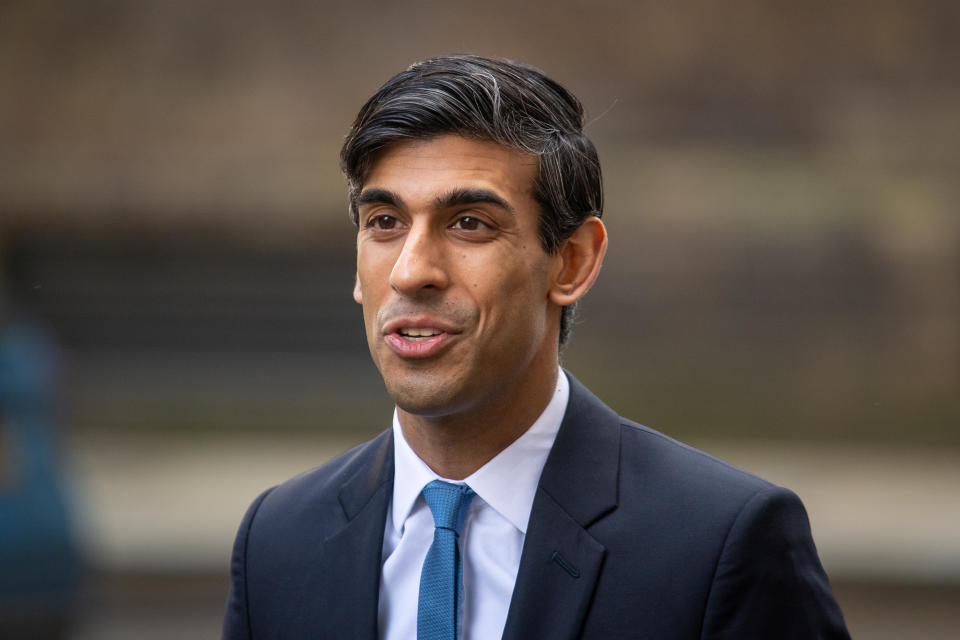Coronavirus: UK furlough scheme extended to October with part-time work allowed

The UK chancellor has promised to extend government wage subsidies for millions of furloughed workers until the end of October, and will loosen the rules to allow them to work part-time.
Rishi Sunak told MPs in parliament on Tuesday he would allow firms to reintroduce workers on furlough leave on a part-time basis from July to help them recover.
Staff will continue to receive pay subsidies at 80% of average pay up to £2,500 ($3,082) a month, rather than a cut to 60%, as some had anticipated. His statement said the costs would be “shared” from July by the government and employers however, with further details on the hit employers will have to take expected by the end of the month.
READ MORE: UK government says work from home ‘for the foreseeable future’
The announcement was welcomed by business leaders, unions, and think tanks. Edwin Morgan from the Institute of Directors said the extension would prove a “significant relief” to firms and staff. He said more flexible rules on part-time work would help firms restart in line with demand, with many “operating far below normal capacity for the foreseeable future.”
The chancellor said the scheme provided a “generous runway” for companies to revive operations as the lockdown begins to ease. “We believe in the dignity of work, and we are doing everything we can to protect people currently unable to work,” he added.
Sunak confirmed 7.5 million workers have now been furloughed since the government began its lockdown to contain the coronavirus crisis, which has cost more than 40,000 lives in the UK.
Almost a million employers are receiving refunds for 80% of the wages of staff who would otherwise risk redundancy. Workers are ‘furloughed’ on a temporary period of paid leave. The scheme has now been extended by another four months beyond the previous June end date.
READ MORE: Economist warns furloughed workers ‘may not get their jobs back’
The sheer scale of the numbers of workers affected illustrates how the coronavirus and government lockdown has hammered the UK economy. Economists warn the recession could be the worst in decades.
Some workers receive top-ups from employers, but many will have taken a 20% hit to their incomes so far and have had to adjust to life without day-to-day work, despite technically remaining employed.
The temporary scheme has also not prevented lay-offs entirely, with unemployment rising. MPs highlighted redundancies planned by British Airways and P&O Ferries in their responses to Sunak on Tuesday.
Fears have been growing that a weak economic recovery could mean widespread lay-offs if the subsidies are cut back too quickly or severely. Mervyn King, a former Bank of England governor, had called earlier on Tuesday (12 May) for the scheme to be maintained until the economy has begun to recover.
Analysts and firms increasingly expect UK economic recovery will not be as fast as previously hoped. Virus fears, social distancing measures, and some continued government curbs may dampen activity long after the general lockdown eases.
READ MORE: UK government crisis measures to cost £104bn this year
Torsten Bell, chief executive of the Resolution Foundation, said a continued lockdown for hard-hit pubs and bars may demand another extension beyond October. He also warned the level of employers’ contributions had to be “carefully calibrated to avoid triggering unnecessary redundancies.”
But with UK government spending soaring on crisis support for health and welfare services and schemes to help firms while tax receipts have sunk, the Treasury is wary about the mounting costs of the scheme. HMRC estimates the cost at £8bn ($9.9bn) so far, but the Office for National Statistics (ONS) says it could reach £49bn this year.
Ministers have repeatedly warned they cannot save all jobs. Sunak said on Tuesday he was talking to union and business leaders about new support and training for the unemployed, which could include helping firms to create jobs.